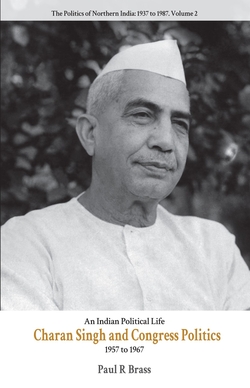“This book is dedicated to that rare breed of politicians who, while upholding and practicing non violence have the gumption to state what they believe, to act upon their beliefs, and to accept the consequences of their actions.”
- Paul R Brass
This book, second of a three-volume series, uniquely straddles the conventional division between the history of an epoch in the politics of North India and a definitive biography – that of Chaudhary Charan Singh, a great son of India.
This volume commences with the resignation of Charan Singh from the government of Dr. Sampurnanand. It goes on to explain the antagonism of Jawaharlal Nehru and Indira Gandhi towards Charan Singh, the further deterioration of the Congress as an effective political organization in Uttar Pradesh, Charan Singh’s break with the Congress in 1967 that achieved his goal of becoming the Chief Minister of UP. Volume 2 ends at a crucial turning point in North Indian political history marked by the death of Jawaharlal Nehru, the beginnings of the fragmentation of the Congress in most states in the country, and the rise of Indira Gandhi to power and as the dominant personality in Indian politics. Charan Singh and the non-Congress political formations in UP were major obstacles to her desire for dominance, at this juncture a struggle began between her and Charan Singh in which her fate as leader of the Congress and the country was at stake.
Charan Singh was a man of principle and pride and a dedicated nationalist, who at once loved his country while condemning the path chosen for it by its political leadership. Charan Singh attempted throughout his public life to wrest power from the urban, elite castes in favor of the rural middle and lower castes and construct a Gandhian economy from the grassroots. He himself came from a humble background in the countryside, though he was no country bumpkin, but a self-made man of high intellect. From a middle self-cultivating peasant caste, he went on to embody and speak for a new social movement, that of the backward castes of Northern India. He molded a multiplicity of castes into a political coalition based on common class and economic interests, whose interests he always promoted and in whose advancement he played the most important role.
Paul R. Brass (1936-2022) was Professor Emeritus of Political Science and International Studies at the University of Washington, Seattle, USA. During a career spanning 60 years, Paul studied the political culture of the Indian subcontinent, wrote 18 well-received scholarly books and published scores of articles on South Asian politics and mass communal violence.


